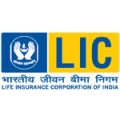Constitution
Our Sponsors


























RBBA Constitution
Adopted on 3 May 2010 as amended on 17 December 2010 and 22 August 2012 (as a result of the 2012 AGM). This constitution is being readopted on 16 February 2019 due to some typos in the previous constitution. The Constitution has been updated in line with the ways in which the Charity has evolved and was verbally adopted on 27-February-2021.
1. Adoption of the Constitution
The association and its property will be administered and managed in accordance with the provisions in Parts 1 and 2 of this constitution.
2. The Name
The association’s name is……. RBBA ……………………………………………… (and in this document, it is called the Charity)
3. The Object[s]
The Charity’s objects (the Objects) are:
-
To promote multi culturalism, Indian art, cultures, heritage and education through activities such as traditional music dance and drama
-
To organise Hindu festivals by conducting the festivals in the traditional Hindu manner.
-
By its activities to provide a platform through which the larger community specially the younger generation is exposed to or can participate, learn and inculcate the values,
traditions as exposed in the other Objects.
-
To provide financial aid for relief of the poor, sick and children in the world as the
trustees see fit.
4. Powers
The Charity has power to do anything which is calculated to further its object[s] or is conducive or incidental to doing so. In particular, the Charities powers include power to:
-
1) Buy, take on lease or in exchange, hire or otherwise acquire any property and to maintain and equip it for use;
-
2) Sell, lease or otherwise dispose of all or any part of the property belonging to the Charity. In exercising this power, the charity must comply as appropriate with sections 117 and 119-123 of the Charities Act 2011;
-
3) Employ and remunerate such staff as are necessary for carrying out the work of the Charity. The Charity may employ or remunerate a charity trustee only to the extent that it is permitted to do so by clause 6 (Benefits and payments to charity trustees and connected persons) and provided it complies with the conditions of those clauses;
-
4) Deposit or invest funds, employ a professional fund-manager, and arrange for the investments or other property of the Charity to be held in the name of a nominee, in the same manner and subject to the same conditions as the trustees of a trust are permitted to do by the Trustee Act 2000.
-
Application of the Income and Property
-
1) The income and property of the Charity shall be applied solely towards the
promotion of the Objects.
-
a) A charity trustee may pay out of, or be reimbursed from, the property of the Charity reasonable expenses properly incurred by the person when acting on behalf of the Charity.
-
b) A charity trustee may benefit from trustee indemnity insurance cover purchased at the charities expense in accordancewith,andsubjecttothe conditionsin,section 189of the CharitiesAct2011.
-
c) None of the income or property of the Charity may be paid or transferred directly or indirectly by way of dividend bonus or otherwise by way of profit to any member of the Charity.
-
d) reasonable and proper remuneration for any goods or services supplied to the Charity;
-
-
2) Nothing in this clause shall prevent a charity trustee or connected person receiving any benefit or payment which is authorised by Clause 6.
-
-
Benefits and payments to charity trustees/ full members/ associates
-
1) General provisions
No charity trustee/ full member/ associate may:
-
a) Buy or receive any goods or services from the Charity on terms preferential to those applicable to the public;
-
b) sell goods, services or any interest in any moveable and immovable property to the Charity;
-
c) be employed by or receive any remuneration from the Charity;
-
d) receive any other financial benefit from the Charity;
-
-
2) Scope and powers permitting trustees, full members, associates or connected persons’ benefits:
-
-
a) A charity trustee, full member or associate or connected person may enter into a contract for the supply of services, or of goods that are supplied in connection with the provision of services, to the Charity where that is permitted in accordance with, and subject to the conditions in, section 185 to 188 of the Charities Act 2011.
-
b) Subject to sub-clause (3) of this clause a charity trustee/full member/ associate or connected person may provide the Charity with goods that are not supplied in connection with services provided to the Charity by the charity trustee or connected person.
-
c) A charity trustee/full member/ associate or connected person may receive interest on money lent to the Charity at a reasonable and proper rate which must be not more than the Bank of England bank rate (also known as the base rate).
-
d) A charity trustee/full member/ associate or connected person may receive rent for premises let by the trustee or connected person to the Charity. The amount of the rent and the other terms of the lease must be reasonable and proper. The charity trustee concerned must withdraw from any meeting at which such a proposal or the rent or other terms of the lease are under discussion.
-
e) A charity trustee/full member/ associate or connected person may take part in the normal trading and fundraising activities of the Charity on the same terms as members of the public.
3) Payment for supply of goods only – controls
The Charity and its trustees may only rely upon the authority provided by sub clause (2)(c) of this clause if each of the following conditions is satisfied:
-
a) The amount or maximum amount of the payment for the goods is set out in a written agreement between the Charity and the charity trustee orconnectedpersonsupplyingthe goods(“thesupplier”).
-
b) The amount or maximum amount of the payment for the goods does not exceed what is reasonable in the circumstances for the supply of the goods in question.
-
c) The other charity trustees are satisfied that it is in the best interests of the Charity to contract with the supplier rather than with someone who is not a charity trustee or connected person. In reaching that decision the charity trustees must balance the advantage of contracting with a charity trustee or connected person against the disadvantages of doing so.
-
d) The supplier is absent from the part of any meeting at which there is discussion of the proposal to enter into a contract or arrangement with him or her or it with regard to the supply of goods to the Charity.
-
e) The supplier does not vote on any such matter and is not to be counted when calculating whether a quorum of charity trustees is present at the meeting.
-
f) The reason for their decision is recorded by the charity trustees in the minute book.
-
g) A majority of the charity trustees then in office are not in receipt of remuneration or payments authorised by clause 6.
4) In sub-clauses (2) and (3) of this clause:
-
a) “the Charity” includes any company in which the Charity:
-
holds more than 50% of the shares; or
-
controls more than 50% of the voting rights attached to the
shares; or
-
has the right to appoint one or more directors to the board of
the company;
-
-
b) “connected person” includes any person within the definition set out in clause [30] (Interpretation);
7. Conflicts of interest and conflicts of loyalty
A charity trustee/ full member/ associate must:
-
1) declare the nature and extent of any interest, direct or indirect, which he or she has in a proposed transaction or arrangement with the Charity or in any transaction or arrangement entered by the Charity which has not previously beendeclared;and
-
2) Absent them self from any discussions/meeting/voting of the charity trustees, full members and associates in which it is possible that a conflict of interest will arise between his or her duty to act solely in the interests of the Charity and any personal interest (including but not limited to any financial interest).
3) Trustees will conclude that there is a low risk conflict of loyalty or low conflict of interest, which, once declared, does not need to prevent the trustee, members and associates from participating in meetings. If the trustees conclude that there is a potential risk in having the affected person in a discussion/meeting/voting, then they will inform him/her to abstain from the discussions/meeting/voting.
Note: The decision of the Trustees will be final in deciding that a conflict of interest or conflict of loyalty is low risk, and that the affected trustee/full member/associate can participate in discussion/meeting/voting. It is not possible to give a definitive view of when this is appropriate. It depends on the particular decision and relevant circumstances. The trustees must take all relevant facts and circumstances into consideration while making a decision and be ready to explain their approach if asked.
4) Any charity trustee, full members, absenting themselves from any discussions in accordance with this clause must not vote or be counted as part of the quorum in any decision of the charity trustees on the matter.
5) A Trustee/Full member/Associate shall not organise and/or participate in any event during which is with direct clash with any RBBA event. (for example, same day or same time) unless it is related to their main profession. (Main profession relates to the person’s profession which is the source of majority of his/her income).
8. Dissolution or winding up the Charity
-
1) If the full members resolve to dissolve the Charity the charity trustees will remain in office as charity trustees and be responsible for winding up the affairs of the Charity in accordance with this clause.
-
2) The charity trustees must collect in all the assets of the Charity and must pay or make provision for all the liabilities of the Charity.
-
3) The charity trustees must apply any remaining property or money:
-
a) directly for the Objects;
-
b) by transfer to any Charity or charities for purposes the same as or
similar to the Charity
-
c) in such other manner as the Charity Commission for England and
Wales (“the Commission”) may approve in writing in advance.
The full members may pass a resolution before or at the same time as the resolution to dissolve the Charity specifying the manner in which the charity trustees are to apply the remaining property or assets of the Charity and charity trustees must comply with the resolution if it is consistent with paragraphs (a) – (c) inclusive in sub-clause (3) above.
-
-
4) In no circumstances shall the net assets of the Charity be paid to or distributed among the full members of the Charity (except to a member that is itself a Charity).
-
5) The charity trustees must notify the Commission promptly that the Charity has been dissolved. If the Trustees are obliged to send the Charity’s accounts to the Commission for the accounting period which ended before its dissolution, they must send the Commission the Charity’s final accounts.
9. Membership of the Charity
The charity offers two types of membership Full Member and Associate 1) Admission of new members
a) Eligibility
Membership of the Charity is open to anyone who is interested in furthering its objects, and who, by applying for membership, has indicated his, her or its agreement to become a member and acceptance of the duty of members set out in sub-clause (3) of this clause.
A member may be an individual over the age of 18.
Membership is open to individuals over eighteen, who are approved by the Trustees provided the person.
-
Accepts and actively supports the objectives of the Charity; and
-
Pays an annual membership fee as decided by the Executive
Committee.
b) Admission procedure The charity trustees:
-
Require applications for membership to be made in any reasonable way that they decide.
-
[shall, if they approve an application for membership, notify the applicant of their decision within [21 days]];
-
May only refuse an application for membership if, acting reasonably and properly, they consider it to be in the best interests of the Charity to refuse the application
-
Must inform the applicant in writing of the reasons for the refusal within twenty-one days of the decision.
-
Must consider any written representations the applicant may make about the decision. The Trustees’ decision followingany written representations must be notified to the applicant in writing but shall be final.
2) Transfer of membership
Membership of the Charity cannot be transferred to anyone else.
3) Duty/Obligations of all members (full members/associates)
It is the duty of each member of the Charity to exercise their powers as a member of the Charity in good faith and in the way it would most likely further the purposes/objects of the Charity.
-
The obligation of the full members and associates is to remain loyal to the activities or events of the Charity;
-
Full members and associates are not to participate in events or activities which is a direct conflict to the Charity event;
-
The only exception to full members and associates not attending Charity events or activities is unless it is part of the persons primary profession or business:

4) Termination of membership
-
a) MembershipoftheCharity comestoanend if:
-
the member dies, or, in the case of an organisation (or the representative of an organisation) that organisation ceases to exist; or
-
the member sends a notice of resignation to the charity trustees; or
-
any sum of money owed by the member to the Charity is not paid in full within six months of its falling due;or
-
The charity trustees decide that it is in the best interests of the Charity that the member in question should be removed from membership and pass a resolution to that effect.
-
-
-
b) Before the charity trustees take any decision to remove someone from membership of the Charity they must:
-
Inform the member of the reasons why it is proposed to remove him, her or it from membership.
-
Give the member at least 21 clear days’ notice in which to make representations to the charity trustees as to why he, she or it should not be removed from membership.
-
iii.
iv. v.
At a duly constituted meeting of the charity trustees, consider whether or not the member should be removed from membership;
Consideratthatmeetinganyrepresentationswhich the member makes as to why the member should not be removed; and
Allow the member, or the member’s representative, to make those representations in person at that meeting,ifthemember so chooses.
5) Membership fees
The Charity requires members to pay an annual membership fee to RBBA. This fee is for membership only and not for the events the Charity conducts through the year. The amount to be paid is to be decided at the AGM and agreed by all members present.
Membership of a person from a family will also include the other direct family members for e.g. parent, spouse, partner, and children. The membership fee will extend to the family as a whole rather than a separate fee for each person in the family.
-
6) Associate membership
-
a) Associate membership will be available to those who would like to newly join the Charity after volunteering and participating for two years and accepts and actively supports in good faith the Objects of the Charity;
-
b) An annual subsidised payment of a membership fee applies to the associate. The membership fee is decided by the executive committee at the AGM;
-
c) Following a period of three years of being an Associate and being actively involved with the Charity, the Trustees may co-opt them into full members. The executive committee will formally write to the Associate to invite the person to accept as a full member.
-
d) An Associate cannot be a Trustee and cannot vote in the AGM.
-
e) The Trustees will decide who to accept as an Associate and how many to accept in a year.
-
-
7) Founder Members
Founder Members (those who adopted the constitution on 17 Dec 2010) & Full Members who have left the association and moved abroad and return to the UK at a later date and wish to be associated with the Charity, will be co-opted as full members after approval of the Trustees
10. General meetings
1) Types of General Meeting
2)
-
a) There must be an annual general meeting (AGM) of the full members and associates of the Charity. The first AGM must be held within 18 months of the registration of the Charity, and subsequent AGMs must be held at intervals of not more than 15 months.
-
b) The AGM must receive the annual statement of accounts (duly audited or examined where applicable) and the Trustees’ annual report and must elect trustees as required under clause [13].
-
c) The Trustees may call a special general meeting at any time.
-
d) Other general meetings of the Full members and Associates of the Charity may be held at any time.
Calling general meetings
-
a) The Charity must hold a general meeting within twelve months of the date of the adoption or re-adoption of this constitution.
-
b) The Trustees must call a special general meeting if requested to do so in writing by at least ten members, whichever is the greater. The request must state the nature of the business that is to be discussed. If the Trustees fail to hold the meeting within 28 days of the request, the members may proceed to call a special general meeting but in doing so they must comply with the provisions of this Constitution.
Notice of general meetings
-
a) The minimum period of notice required to hold any general meeting of the Charity is 14 clear days from the date on which the notice is deemed to have been given.
-
b) A general meeting may be called by shorter notice, if it is so agreed, by the Trustees.
-
c) The notice of any general meeting must:
-
Specify the date and, time of the meeting;
-
State the address where the meeting will take place;
-
Provide the agenda and the general nature of the business to be addressed;
-
-
If a proposal to alter the constitution of the Charity is to be considered at the meeting, share the text of the proposed alteration with the members prior to the meeting, at least 5 days in advance include;
-
With the notice for the AGM, the annual statement of accounts and trustees’ annual report, details of persons standing for election or re- election as trustee, or where allowed under clause [22] (Use of electronic communication), details of where the information may be found on the Charity or Charity Commission website.
d) The notice must be given to all Full Members, Associates and Trustees.
-
4) Chairing of general meetings
General meetings shall be chaired by the person who is elected as the President in the Executive Committee. If for any reason the President is not able to attend the meeting then it shall be chaired by the Secretary. If neither are present then another member of the Executive Committee will chair the general meetings.
-
5) Quorum at general meetings
-
a) No business shall be transacted at any general meeting of the members, associates and trustees unless a quorum is present.
-
b) A quorum shall consist of at least 60% of the total membership (this includes members, associates and trustees at the time of the general meeting).
-
c) The authorised representative of a member organisation shall be counted in the quorum.
-
d) If:
-
A quorum is not present within half an hour from the time
appointed for the meeting; or
-
During a meeting a quorum ceases to be present;
-
The meeting shall be adjourned to such time and place as the Executive Committee shall determine.
-
-
e) The Trustees must re-convene the meeting and must give at least 7 clear days’ notice of the re-convened meeting stating the date, time and place of the meeting.
-
f) If no quorum is present at the re-convened meeting within half an hour of the time specified for the start of the meeting the members present at that time shall constitute the quorum for that meeting.
-
6) Voting at general meetings
-
a) Any decision other than one falling within clause [10(4)] (Decisions that must be taken in a particular way) shall be taken by a simple majority of votes cast at the meeting [(including proxy and postal votes)]. Every member has one vote (per family) [unless otherwise provided in the rights of a particular class of membership under this constitution]. The above is applicable when voting takes place at the Annual General Meeting to elect office bearers.
-
b) Other than the AGM, all adult members (including direct family of the members) of the organisation will have one vote per person during voting on any matters related to the day to day running of the organisation.
-
c) A resolution put to the vote in a meeting shall be decided on a show of hands, unless (before or on the declaration of the result of the show of hands) a poll is duly demanded. A poll may be demanded by the chair or by at least 40% of the members present in person or by proxy at the meeting.
-
d) A poll demanded on the election of a person to chair the meeting or on a question of adjournment must be taken immediately. A poll on any other matter shall be taken, and the result of the poll shall be announced, in such manner as the chair of the meeting shall decide.
-
e) A poll may be taken:
-
at the meeting at which it was demanded; or
-
at some other time and place specified by the chair; or
-
through the use of postal or electronic communications.
-
Result of voting if poll taken in a meeting will be declared in the meeting.
-
Result of any other poll taken some other time and place as specified by the chair to be announced within 30 days of the demand for the poll.
-
[In the event of an equality of votes, whether on a show of hands or on a poll, the chair of the meeting shall have a second, or casting vote.]
f) Any objection to the qualification of any voter must be raised at the meeting at which the vote is cast and the decision of the chair of the meeting shall be final.
7) Adjournments
-
a) The members present at a meeting may resolve that the meeting shall be adjourned.
-
b) The person who is chairing the meeting must decide the date time and place at which meeting is to be re-convened unless those details are specified in the resolution.
-
c) No business shall be conducted at an adjourned meeting unless it could properly have been conducted at the meeting had the adjournment not taken place.
-
d) If a meeting is adjourned by a resolution of the members for more than seven days, at least seven clear days’ notice shall be given of the re- convened meeting stating the date, time and place of the meeting unless the re-convened meeting date, time and place are specified in the resolution.
11. Officers and Trustees
-
1) The Charity and its property shall be managed and administered by an executive committee comprising the Officers elected in accordance with this Constitution. The Officers of the executive committee must be Trustees of the Charity. It is the Trustees who provide power to the executive committee.
a) The Executive Committee shall be responsible for putting a plan together for the Trustees on how the Charity will operate for the year.
-
2) The Charity shall have the following Officers (whom together will form the executive committee):
-
a) A President;
-
b) A Secretary;
-
c) A Treasurer;
-
d) An Assistant Treasurer; and
-
e) A Charity Advisor.
-
-
3) The functions of the Officers include:
a) President
-
Will call executive committee meetings giving fourteen days’ notice to all members with agenda for the meeting;
-
Will preside all meetings of the Charity;
-
Will cast their vote in the event of a tie;
-
Will approach any VIP as may be necessary with the
Secretary or Treasurer for the benefit of the Charity.
-
b) Secretary
4) Powers
-
Will execute the functions of the President in the persons absence;
-
Will carry out decisions taken by the executive committee;
-
Will place the minutes of the last meeting before the executive committee;
-
Will be responsible for circulating the minutes and storing them to the Charity cloud storage.
-
Will be the ex – officio member of the newly elected executive committee.
c) Treasurer
-
Will execute all financial transactions on behalf of the executive committee;
-
Will maintain the Accounts of the Charity;
-
The Treasurer can issue cheques jointly with the any one
of the 2 other counter signatories;
-
Will advise Bank as and when necessary;
-
Will place the audited statement of the Charity accounts to the Independent Auditor
-
Will prepare the annual return for the charity commission;
-
Will be the ex officio member of the incoming newly
elected executive committee.
-
The post will be locked for 3 years, following an election
there should be handover between treasurers for transfer of the banking rights.
-
d) Assistant Treasurer
-
Will assist the Treasurer in the persons role and capacity
-
Will be responsible for drafting and issuing contracts for
stalls for Charity events
-
Will be responsible for drafting and issuing invoices for
sponsorship payments
-
Will be responsible for collecting members expenses
claims and supporting documents
-
-
e) Charity Advisor
-
Will maintain a register of members, associates and trustees;
-
Will prepare the annual return and the Trustees annual report for the charity commission;
-
Will prepare and submit the Gift aid schedules to the HMRC;
-
Will advise of legal issues and assist in the running of the office of the Charity.
The executive committee will be elected by the full members, of the Charity and will hold office for one year until the next AGM. The trustees can question the executive committee and ask for them to report on certain issues to the Trustees.
5) The functions of the Executive Committee will include:
-
a) In the first meeting of the newly elected committee, the outgoing office bearer will hand over charge to the newly elected executive committee.
-
b) May co-opt members to replace or following resignation or death of any member.
-
c) May appoint sub-committees to deal with special matters of importance and may determine their terms of references, power and composition. The President, Secretary and Treasurer will automatically become part of the subcommittee. The subcommittee will place its recommendation to the executive committee.
-
d) Will operate a bank account to carry out the financial transaction of the association. All cheques will be signed by the treasurer and one of the officers. No cheque shall be issued on behalf of the charity without the signature of two signatories.
-
e) Appoint an auditor to audit the account of the charity if there are any irregularities.
-
f) Any addition or amendment of the constitution will have to be discussed and accepted the executive committee first.
12. Finance and Bank Accounts
-
1) Bank Accounts
-
a) The charity will operate a bank account to carry out the financial transaction of the association.
-
b) All cheques will be signed by the treasurer and one of the officers.
-
c) No cheque shall be issued on behalf of the Charity without the
signature of two signatories.
-
d) To advance with technology and have online banking with dual
authorization features.
-
-
2) Reserves from income
a)
b)
Any surplus income over expenses for the current financial year will be carried over to the funds for next year’s activities of the charity and for sub-clause (b);
A portion of the accumulated surplus in the charity’s account will be put in a ring-fenced fund. This amount, as decided by the trustees, can only be used if required in exceptional circumstances for
14
RBBA Constitution
performing the main religious festival organized by the charity.
3) Contribution to chosen charities
-
a) The charity will choose to donate to other charities to meet the charitable objectives of the association. Each year it will support one charity financially which shall be decided by the members of the association. The amount to be donated will be decided yearly based on amount of reserves the association has at the end of the financial year.
-
b) However, this does not restrict the charity from helping other charities by any other means deemed as useful to those charities.
13. Charity Trustees
-
1) Functions and duties of charity trustees
The charity trustees shall manage the affairs of the Charity and may for that purpose exercise all the powers of the Charity. It is the duty of each charity trustee:
-
a) to exercise his or her powers and to perform his or her functions as a trustee of the Charity in the way he or she decides in good faith would be most likely to further the purposes of the Charities objectives; and
-
b) to exercise, in the performance of those functions, such care and skill as is reasonable in the circumstances having regard in particular to:
-
any special knowledge or experience that he or she has or holds himself or herself out as having; and
-
if he or she acts as a charity trustee of the Charity in the course of a business or profession, to any special knowledge or experience that it is reasonable to expect of a person acting in the course of that kind of business or profession.
-
-
-
2) Eligibility for Trusteeship
-
a) A Trustee must be a member of the Charity who has completed two years as a Full Member can apply to be a Charity Trustee.
-
b) No one may be appointed a Trustee if he or she would be disqualified from acting under the provisions of Clause 19.
-
c) The number of Trustees shall be not less than three but (unless otherwise determined by a resolution of the Charity in general meeting) shall be subject to maximum of 11.
-
d) A Trustee cannot appoint anyone to act on his or her behalf at meetings of the Trustees.
-
3) Appointment of Trustees
-
a) The Charity in the general meeting shall elect the Officers and the other Trustees.
i. A total number of not more than 11 Trustees will be appointed;
-
b) The Trustees may appoint any person who is willing to act as a Trustee. Subject to sub-clause 5(b) of this clause, they may also appoint Trustees to act as Officers.
-
c) If there are less than 11 Trustees a full member who is eligible to be a trustee can express their interest in writing to the Charity Advisor. The Charity advisor will send the person Trustee details provided by the Charity commission, and a trustee charity commission form. If after reading the documents the person still wishes to proceed then the matter with be discussed by the Board of Trustees.
-
d) The Board of Trustees will review the application received by the Charity Advisor, and decide in their next Board meeting whether to accept the application. If the Board does not accept the application then they must convey the decision in writing with reasons for their refusal.
-
-
4) Powers of Trustees
a) The Trustees must manage the business of the Charity and have the following powers in order to further the Objects (but not for any other purpose):
-
To raise funds. In doing so, the Trustees must not undertake any substantial permanent trading activity and must comply with any relevant statutory regulations;
-
To buy, take on lease or in exchange, hire or otherwise acquire any property and to maintain and equip it for use;
-
To sell, lease or otherwise dispose of all or any part of the property belonging to the Charity. In exercising this power, the Trustees must comply as appropriate with sections 36 and 37 of the Charities Act 1993, as amended by the Charities Act 2006;
-
To borrow money and to charge the whole or any part of the property belonging to the Charity as security for repayment of the money borrowed. The Trustees must comply as appropriate with sections 38 and 39 of the Charities Act 1993 as amended by the Charities Act 2006, if they intend to mortgage land;
-
To co-operate with other charities, voluntary bodies and statutory authorities and to exchange information and advice with them;
-
To establish or support any charitable trusts, associations or institutions formed for any of the charitable purposes included in the Objects;
-
To acquire, merge with or enter into any partnership or joint venture arrangement with any other Charity formed for any of the Objects;
-
To set aside income as a reserve against future expenditure but only in accordance with a written policy about reserves;
-
To obtain and pay for such goods and services as are
necessary for carrying out the work of the Charity;
-
To open and operate such bank and other accounts as the Trustees consider necessary and to invest funds and to delegate the management of funds in the same manner and subject to the same conditions as the Trustees of a trust are
permitted to do by the Trustee Act 2000;
-
To do all such other lawful things as are necessary for the
achievement of the Objects;
-
b) No alteration of this constitution or any special resolution shall have retrospective effect to invalidate any prior act of the Trustees.
-
c) Any meeting of Trustees at which a quorum is present at the time the relevant decision is made may exercise all the powers exercisable by the Trustees.
-
5) Disqualification and Removal of Trustees
A Trustee shall cease to hold office if he or she:
-
a) Is disqualified for acting as a Trustee by virtue of section 72 of the Charities Act 1993 (or any statutory re-enactment or modification of that provision);
-
b) Ceases to be a member of the Charity;
-
c) Becomes incapable by reason of mental disorder, illness or injury of managing and administering his or her own affairs;
-
d) Resigns as a Trustee by notice to the Charity (but only if at least two Trustees will remain in office when the notice of resignation is to take effect); or
-
e) Is absent without the permission of the Trustees from all their meetings held within a period of six consecutive months and the Trustees resolve that his or her office be vacated.
-
-
6) Proceedings of Trustees
a) The Trustees may regulate their proceedings as they think fit, subject to the provisions of this constitution.
14. Delegation
-
b) There will be a minimum of two face to face or video conferencing meetings of all the Trustees each year. Of course, sometimes a trustee will be unavailable (for a particular meeting or decision. But an absent trustee will still share responsibility for the decision that the other trustees made. The Charity Secretary will be responsible for ensuring Minutes of the Trustees meetings are recorded and kept.
-
c) Any Trustee may call a meeting of the Trustees.
-
d) The secretary must call a meeting of the Trustees if requested to do so by a Trustee.
-
e) Questions arising at a meeting must be decided by a majority of votes.
-
f) In the case of an equality of votes, the person who chairs the meeting shall have a second or casting vote.
-
g) No decision may be made by a meeting of the Trustees unless a quorum is present at the time the decision is purported to be made.
-
h) The quorum shall be 60% of the total Trustees.
-
i) A Trustee shall not be counted in the quorum present when any decision is made about a matter upon which that Trustee is not entitled to vote.
-
j) If the number of Trustees is less than the number fixed as the quorum, the continuing Trustees or Trustee may act only for the purpose of filling vacancies or of calling a general meeting.
-
k) The person elected as the Chair shall chair meetings of the Trustees. If the Chair is unwilling to preside or is not present within ten minutes after the time appointed for the meeting, the Trustees present may appoint one of their number to chair that meeting. The person appointed to chair meetings of the Trustees shall have no functions or powers except those conferred by this constitution or delegated to him or her in writing by the Trustees.
-
l) A resolution in writing signed by all the Trustees entitled to receive notice of a meeting of Trustees or of a committee of Trustees and to vote upon the resolution shall be as valid and effectual as if it had been passed at a meeting of the Trustees or (as the case may be) a committee of Trustees duly convened and held The resolution in writing may compromise several documents containing the text of the resolution in life form each signed by one or more Trustees.
In our Charity set up the process of delegation does not work and hence we have chosen to remove it. However, the Trustees can have postal or e-voting on matters which have been raised in the agenda.
15. Irregularities in Proceedings
1) Subject to sub-clause (2) of this clause, all acts done by a meeting of Trustees, or of a committee of Trustees, shall be valid notwithstanding the participation in any vote of a Trustee:
-
a) Who was disqualified from holding office;
-
b) Who had previously retired or who had been obliged by the
constitution to vacate office;
-
c) Who was not entitled to vote on the matter, whether by reason of a
conflict of interest or otherwise.
If without:
-
d) The vote of that Trustee; and
-
e) That Trustee being counted in the quorum,
The decision has been made by a majority of the Trustees at a quorate meeting.
-
2) Sub-clause (1) of this clause does not permit a Trustee to keep any benefit that may have been conferred upon him or her by a resolution passed by the Trustees or a committee of Trustees if the resolution would otherwise have been void.
-
3) No quorate meeting resolution or act of
-
a) The Trustees
-
b) Any committee / sub-committee of the Trustees
-
c) The Charity in the general meeting
-
shall be invalidated by reason of the failure to give notice to any Trustee or member or by reason of any procedural defect in the meeting unless it is shown that the failure or defect has materially affected the functioning, or the aims & objectives of the charity
16. Minutes
The Trustees/Charity must keep minutes of all:
-
1) Present & future appointments of Officer bearers and the Trustees made by the Board of Trustees;
-
2) Proceedings at meetings of the Charity;
-
3) Meetings of the Trustees and committees of Trustees including:
-
a) The names of the Trustees present at the meeting;
-
b) The decisions made at the meetings; and
-
c) Where appropriate the reasons for the decisions.
-
17. Annual Report and Return and Accounts
1) The Trustees must comply with their regulations under the charities Act 1993 with regard to:
-
a) The keeping of accounting records for the Charity;
-
b) The preparation of annual statements of account for the Charity;
-
c) The transmission of the statements of account to the Charity;
-
d) The preparation of an Annual Report and its transmission to the
Commission;
-
e) The preparation of an Annual Return and its transmission to the
Commission.
2) Accounts must be prepared in accordance with the provisions of any Statement of Recommended Practice issued by the Commission, unless the Trustees are required to prepare accounts in accordance with the provisions of such a Statement prepared by another body.
18. Registered particulars
The Trustees must notify the Commission promptly of any changes to the Charity’s entry on the Central Register of Charities.
19. Repair and Insurance
The Trustees must keep in repair and insure to their full value against fire, accidents and other usual risks all the movable & immovable assets of the charity (except those movable & immovable assets that are required to be kept in repair and insured by a tenant). They must also ensure adequate indemnity by way of fire, accidental or other forms of insurance in respect of public liability & employers’ liability. The Trustees should also have appropriate Charity Trustees Indemnity insurance in place.
20. Rules
-
1) The Trustees may from time to time make rules or bye-laws for the conduct of the functioning of the Trust as well as any sub-committees of the Trust & the Office bears of the Trust.
-
2) The bye-laws may regulate the following matters but are not restricted to them:
-
a) The admission of members of the Charity (including the admission of organisations to membership) and the rights and privileges of such members, and the entrance fees, subscriptions and other fees or
payments to be made by members;
-
b) The conduct of members of the Charity in relation to one another,
and to the Charity’s employees and volunteers;
-
c) The setting aside of the whole or any part or parts of the Charity’s
premises at any particular time or times or for any particular purpose
or purposes;
-
d) The procedure at general meeting and meetings of the Trustees in so
far as such procedure is not regulated by this Constitution;
-
e) The keeping and authenticating of records. (If regulations made under this clause permit records of the Charity to be kept in electronic form and requires a Trustee to sign the record, the regulations must specify a method of recording the signature that enables it to be properly authenticated.)
-
f) Generally, all such matters as are commonly the subject matter of
the rules of an unincorporated association.
-
3) The Charity in general meeting has the power to alter, add to or repeal the rules or bye-laws.
-
4) The Trustees must adopt such means as they think sufficient to bring the rules and bye-laws to the notice of members of the Charity.
-
5) The rules or bye-laws shall be binding on all members of the Charity. No rule or bye-law shall be inconsistent with, or shall affect or repeal anything contained in, this constitution.
